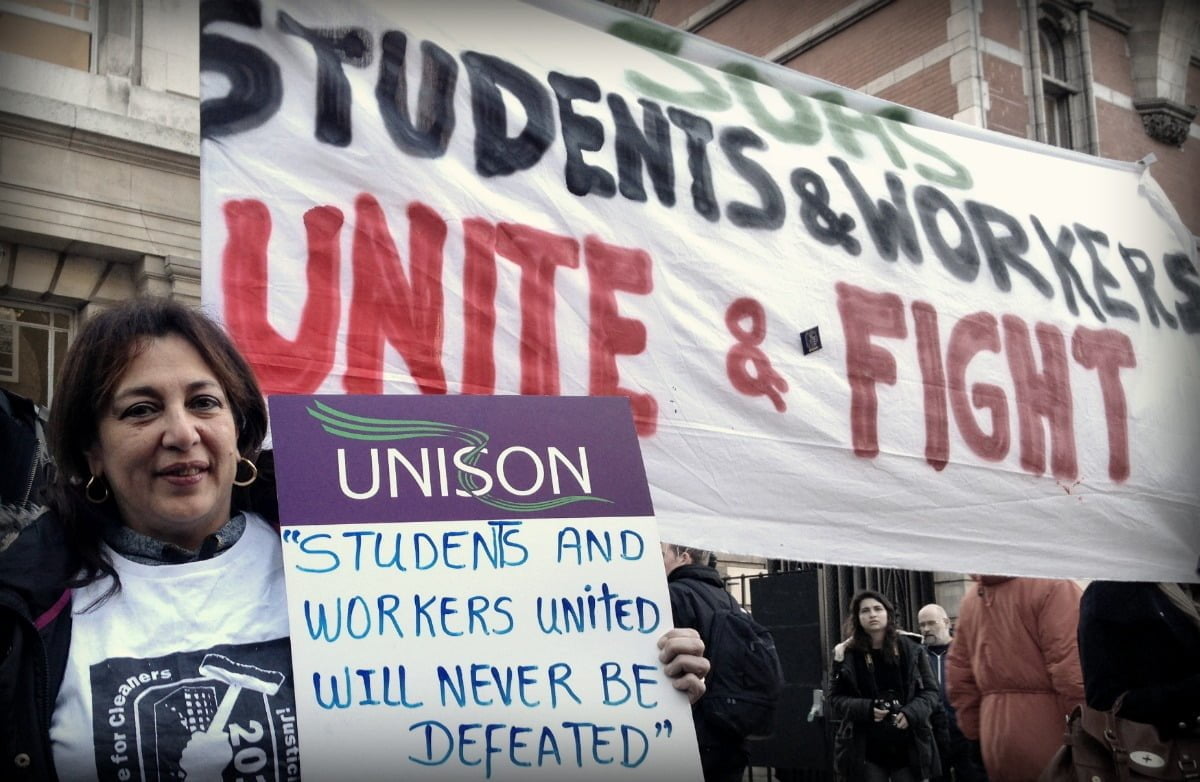University workers in Unison are to vote on whether to strike in their fight for decent pay. The union must offer a bold campaign and give members confidence to take action.
Universities have long been regarded as prestigious institutions: respected and esteemed places of learning, where young people will gain the skills and qualifications to land their dream job, and where the staff are all wealthy, distinguished scholars. The last decade or so has completely shattered this illusion.
From the student protests back in 2010 over massive hikes to university fees; to the more recent UCU strikes earlier this year over pensions: it has become increasingly evident that the university and higher education (HE) sector is built upon overworked and dissatisfied staff and students, who are respectively underpaid and overcharged.
The UCU strikes, despite being about pensions, revealed a whole host of other problems in the sector. For example, a huge proportion of university teaching hours, as well as marking and other duties, are being carried out by casualised graduate workers, often struggling to complete their own postgraduate studies alongside this paid work.
Now Unison – the second largest union in the country, and a key union in the HE sector – is preparing to issue strike ballots to members over the issue of pay.
Unison represents those workers in the HE sector who are not covered by UCU. These are the lowest paid, non-academic staff – those who keep the wheels of these huge institutions turning on a daily basis: cleaning staff, catering staff, groundskeepers, as well as administrational staff, porters and security staff.
These staff often earn the minimum wage, or not much more, working in a sector that faces increasing privatisation, cuts to funding, and job losses.
The employers, yet again, have made an offer of a below-inflation pay rise. In negotiations, the union rejected the offer.
Year after year of below-inflation pay rises have seen a fall in real wages for non-academic staff at universities. Coupled with that, as universities try to run themselves more and more like businesses, the costs of things like parking or food from canteens and university-run outlets are steadily increasing.
Unison’s counter offer is for an increase of 7.5%, with a minimum wage of £10 an hour.
The Tories’ 2016 Trade Union Act ensures that a vote for strike action is only valid if the turnout is over 50%, regardless of the results from those ballot papers cast.
The ballot is likely to take place this autumn, perhaps even as early as September. This means that union branches at universities will have to campaign and ensure that their records are up to date in preparation for the ballot over the short remainder of the summer.
This isn’t much time. But the demand for a £10 per hour minimum wage – a pay rise that would actually reflect the ever-increasing cost of living this epoch of capitalist crisis and austerity – is something that university staff can really get behind.
What is needed is a bold campaign from the union, to encourage these sections of university staff to join the union and vote in the ballot, and to actively fight for fair pay.
Only a strong, fighting union can tackle the issue in the short term and – in the longer term – give workers confidence in their ability to organise and struggle for even more.






